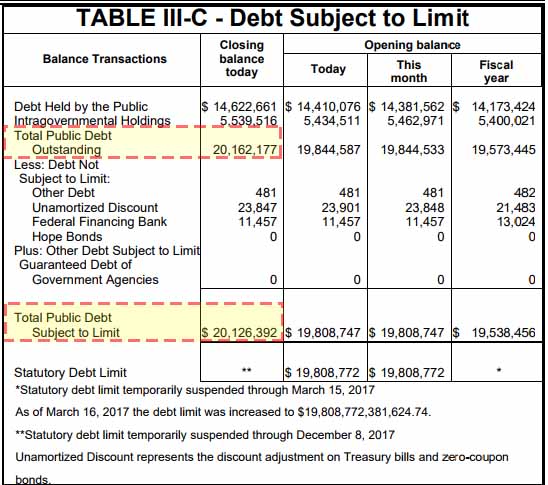Following President Trump’s sign off last Friday on a short-term debt-ceiling/government funding/hurricane aid deal (thanks to Democrats’ votes), the US Treasury was finally freed from the shackles of the debt ceiling which it hit nearly one year ago and which meant that US federal debt would be at roughly $19.808 trillion for months.
Well, no more: according to the latest Daily Treasury Statement as of Friday, total US debt surged by $317.6 billion from its Thursday closing print of $19.845 trillion, following the short-term debt suspension which kicked the can through December 8, to finally rise above the “psychological barrier” of $20 trillion, or $20,162,176,797,904.13 to be precise.

As shown in the chart below, from March 16 until Thursday, Sept. 8, the official federal debt subject to the legal limit was at $19,808,747,000,000, i.e. the statutory debt ceiling. This is because the previous suspension of the debt limit expired on March 15 and the debt limit had been reset on that day at the level the debt reached the close of business that day. On that day, the Treasury started using “extraordinary measures” to keep the debt subject to the limit about $25 million below the limit.
The Treasury was finally freed from this limit on Friday, and thus the $317.6 billion surge in one day as the US Government replenished its extraordinary measures, which should allow the Treasury to coast until some time in March even after the next debt ceiling is hit on December 8.













Leave A Comment